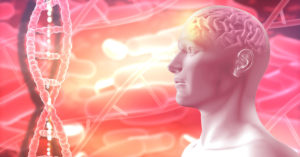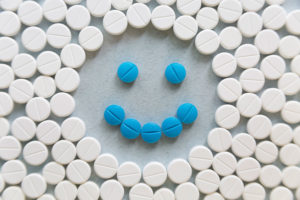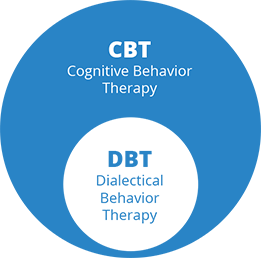By Sheila O’Shea [Trigger warning: suicidal ideation] I knew it wasn’t Attention Deficit Disorder. I went through a battery of tests for ADD—pointing at pictures of aliens and reciting their names, holding a metal rod steady so it wouldn’t touch the inside of a metal ring, filling out questionnaires—and the doctor concluded that I didn’t…
Read More >>In order to fully understand how to best treat mental illness, we must first understand the factors that can cause mental illness, specifically the balance between nature and nurture. It’s important to remember that psychiatric conditions are medical problems that deserve the same kind of attention, research, and treatment as any physical ailment. What Causes…
Read More >>Evidence-based psychiatric treatment relies on trust between physicians and their clients to find the best solutions possible for dealing with mental illness. Clients should be receptive to medications that can improve mood and quality of life while their doctors make a medication choice based on the client’s personal history, diagnosis, and lifestyle that has the…
Read More >>We all struggle through times when sleep is in short supply: when college exams, a new baby, or a financial worry prevent us from getting a peaceful night’s rest. But research continues to uncover the consequences of regularly missing out on healthy sleep and the potential perils of sleeping too much. Sleep seems to be…
Read More >>For decades, youth sports in the United States has been an avenue for kids of all ages to make friends, be physically active, challenge themselves, and learn skills such as teamwork, sportsmanship, and the value of hard work—all of which can provide great stepping stones towards personal growth and achievement later in life. When it…
Read More >>Roughly one-third of people with major depressive disorder are affected by treatment-resistant depression, also known as TRD.
Specialized, evidence-based treatment can help people battling treatment-resistant depression reduce their symptoms, improve functioning, and feel better.
Read More >>You may think that once you finish high school, you’re finished growing up. Physically, you’re probably as tall as you will ever get. You may have reached your final shoe size. Whether you head off to college or out to make your own way in the world, you will likely gain a great deal of…
Read More >>What is major depression? Major depressive disorder, also called major depression or unipolar depression, is a serious mood disorder with severe symptoms that can interfere with a person’s ability to handle daily activities, relationships, and work or school responsibilities. Major depression affects about 6.7 percent of U.S. adults in a given year. To be diagnosed…
Read More >>Parenting can be hard at the best of times. When you’re struggling with depression, you might feel like you can’t provide the care and support your children need. There are many things you can do to make caring for your children a little easier while you treat your own depression. On days when you feel like…
Read More >>Psychotherapy is one of the best treatment methods available for a number of mental illnesses. One of the most common types of therapy is called Cognitive Behavioral Therapy (CBT). Also called talk therapy, CBT focuses on talking about your problems to help you frame your thoughts differently. If you feel like negative thoughts are always in…
Read More >>- « Previous
- 1
- 2
- 3
- Next »










